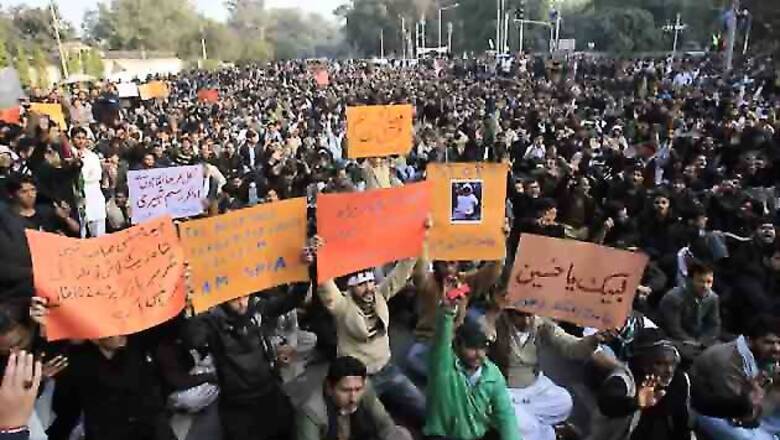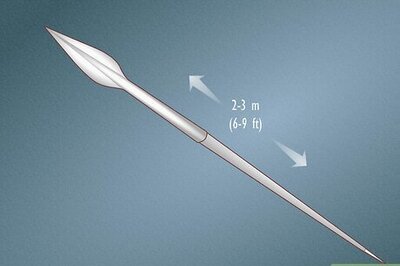
views
Quetta: The Pakistan government has imposed governor's rule in the troubled province of Baluchistan after dissolving the ruling provincial government. Prime Minister, Raja Pervez Ashraf made the announcement late Sunday night after prolonged talks with Hazara Shia leaders who were staging a sit-in to demand the dismissal of provincial government and the army control of Quetta.
Ashraf assured the leaders of the Hazara Shia community that under governor rule the chief executive of the province could summon the army anytime to help the administration. The sit-in by the Hazara community leaders started on Alamdar road in the city since Thursday night when twin bomb blasts in the area killed around 98 people and injured over 130.
Most of those killed in the twin blasts belonged to the Hazara Shias who have refused to bury the victims until their demands were met by the government. Jan Ali Changezi, a central leader of the Hazara community, said the sit-in would only end and the victims would be buried after the notification about the dissolution of the provincial government and the imposition of the governor's rule was issued.
"We are thankful to the prime minister for listening to our grievances but we have informed him that we will only end the sit in and bury our dead when the notification for the governors rule is imposed," he said. The Chief Secretary of the province said that the notification invoking governors rule would be imposed by the president shortly.
Three bomb attacks carried out in the city on Thursday turned out to be the catalyst for the imposition of the governors rule in the Baluchistan province. "Our people have braved the cold weather and rains to highlight the targeted killings of our community and sect", Allama Raja Nasir Abbas a central leader of the Shia Ittehad council said.
In 2012 alone, according to human rights organisations, around 500 Shias, most of them from the Hazara community, were killed in targeted attacks in the province. The government came under pressure after protesters also started a sit-in outside the Bilawal house in Karachi the official residence of President Asif Zardari who has been in the city since last week.
The number of protesters including women and children increased throughout the day. But the main sit-in on Alamdar road in Quetta where the twin blasts had taken place attracted the most concern from the political leadership as the protesters refused to bury the victims.




















Comments
0 comment